
Specialty Gardening White Mandevilla , 1 by BettyFB
Mandevilla is a tropical flowering vine that is commonly grown for its showy blooms and lush foliage. It is native to South America and is also known as Dipladenia. Hardiness: These flowering vines thrive in warm, humid weather and perform well in USDA Zones 9-11, depending on the species. In cooler areas, Mandevilla is often grown as an annual.
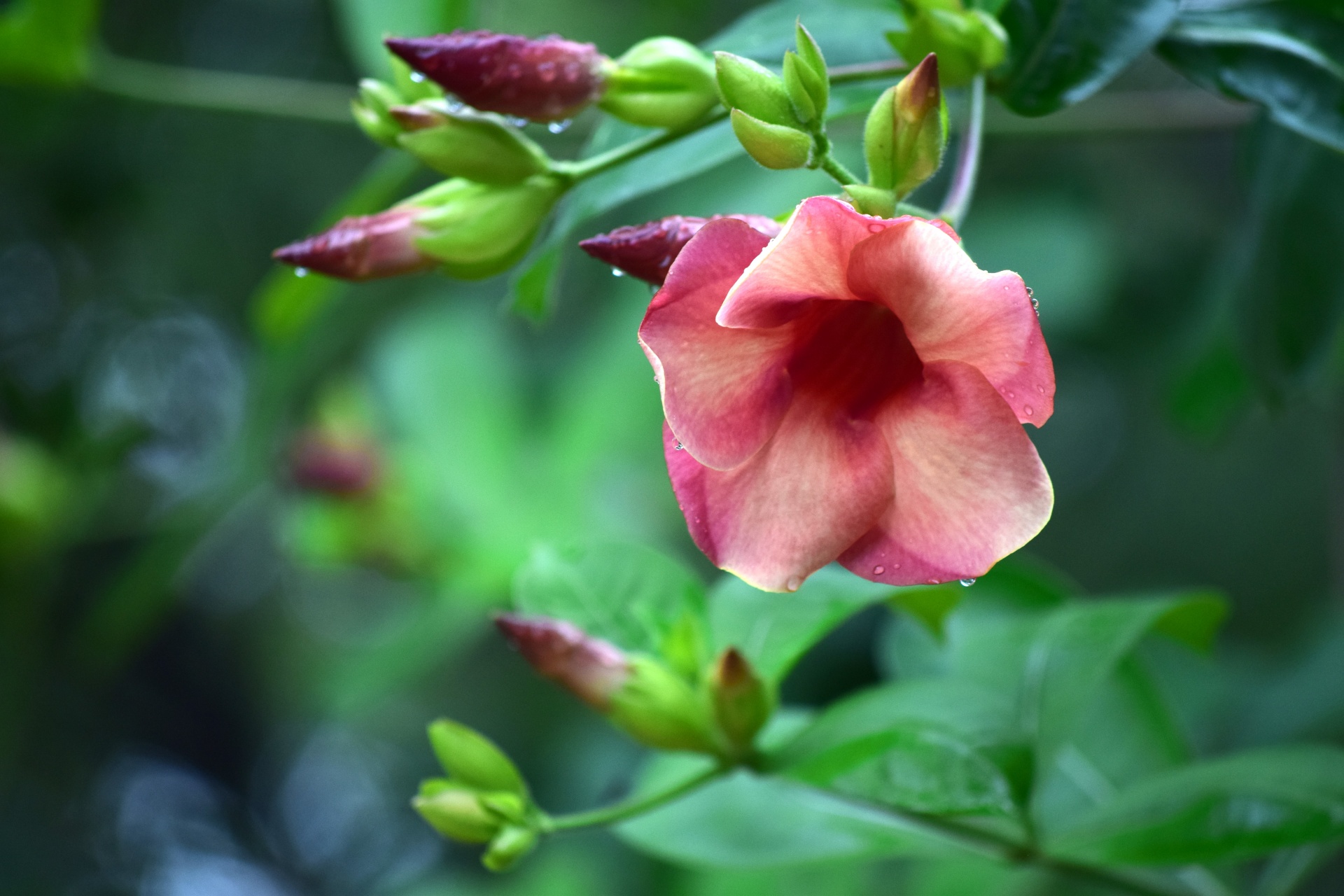
Mandevilla Flowers 5 Free Stock Photo Public Domain Pictures
Family: Apocynaceae Plant Type: Vine Hardiness Zones: 10 - 11 (USDA) Sun Exposure: Full to partial sun Soil Type: Sandy, well-draining soil Soil pH: 6.6 - 7.8 (Mildly acidic or alkaline) Height: 3 to 10 feet Spacing: 5 feet apart Bloom Time: Summer, fall Flower Color: Pink, white, red Native Area: North America, Central America, South America

Mandevilla, Mandevilla spp. (Gentianales Apocynaceae) 1609951
Native: Mandevilla is a genus of tropical and subtropical flowering vines that hail from the Southwestern United States, Mexico, Central America, the West Indies, and South America. The plant belongs to the family Apocynaceae, which includes other popular plants such as periwinkle and oleander.

Your photos mandevilla Homegrown
There are a lot of reasons it's beloved: Mandevilla is low maintenance, disease- and pest-resistant, fast-growing and a prolific bloomer. Plant one in a pot in April, and you'll have a towering vine covered in fragrant flowers all summer. Mandevilla is a perennial in its ideal growing zones of 9 to 11, but it dies when exposed to freezing.

Mandevilla 2 A Mandevilla flower in my backyard garden. Philip
Most mandevillas can grow to 10 feet long with little effort other than a place to climb and regular watering. In warm southern zones (10 and 11), plant Mandevilla Giant Red Emperor in full or part sun and it will continue to bloom outdoors with long-lasting red flowers from planting time until first frost.

How to Grow Mandevilla Grow Mandevilla and Care for This Vine
Known for its elegant trumpet-shaped flowers, the Mandevilla plant is a favorite among flower enthusiasts and designers alike. Its vibrant blooms and charming allure make it the perfect addition to any floral arrangement or garden. Some common names are: Mandevilla Sanderi. Brazilian Jasmine. Dipladenia.

Fertilizing Mandevilla When And How To Fertilize A Mandevilla
Mandevilla aka rock trumpet, aka Chilean jasmine, is a beautiful sun-loving tropical vine that grows up to 20 feet long in tropical and subtropical climates. If taken care of right, Mandevilla vines grow trumpet-shaped flowers with five petals and can be red, pink, white, or yellow in color. Mandevillas grow best in mid to late spring.
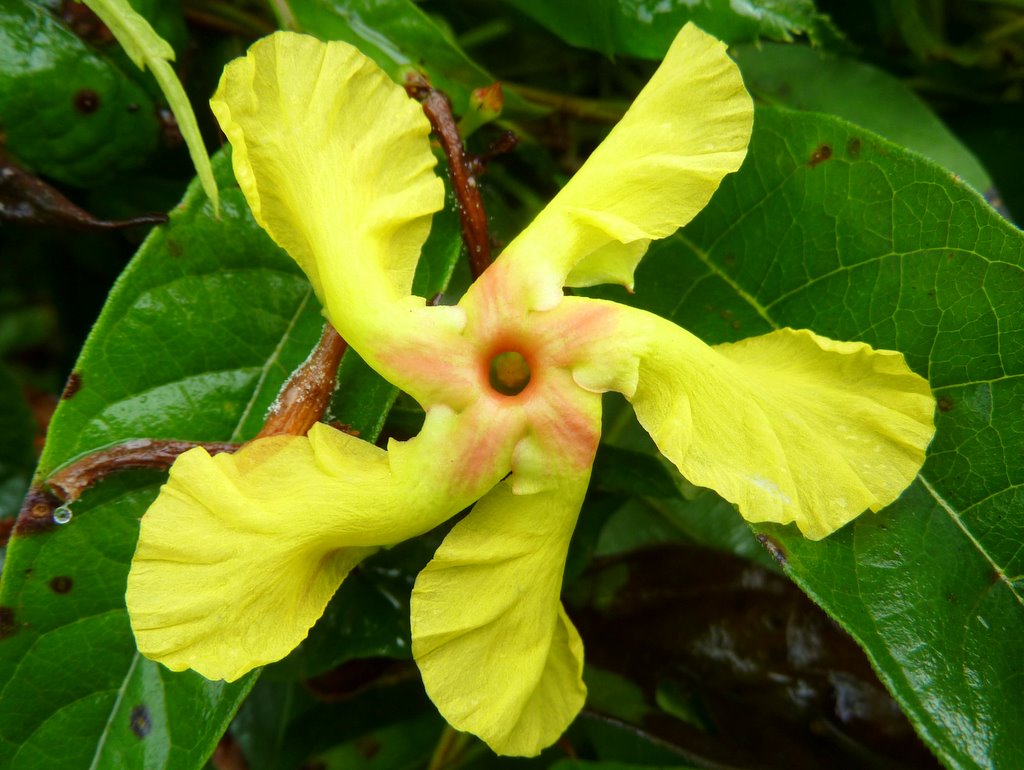
Mandevilla subsagittata, Apocynaceae Andreas Kay Flickr
Dipladenia (mandewilla) to ozdobne pnącze zachwycające pięknymi kwiatami. Roślinę uprawia się w pojemnikach w domu, na balkonach i tarasach. Podpowiadamy, jak pielęgnować dipladenię, by obficie kwitła co roku. Uprawa i pielęgnacja mandewilli. Do niedawna dipladenia, znana też pod nazwą mandewilla, należała do ścisłego grona balkonowej arystokracji.
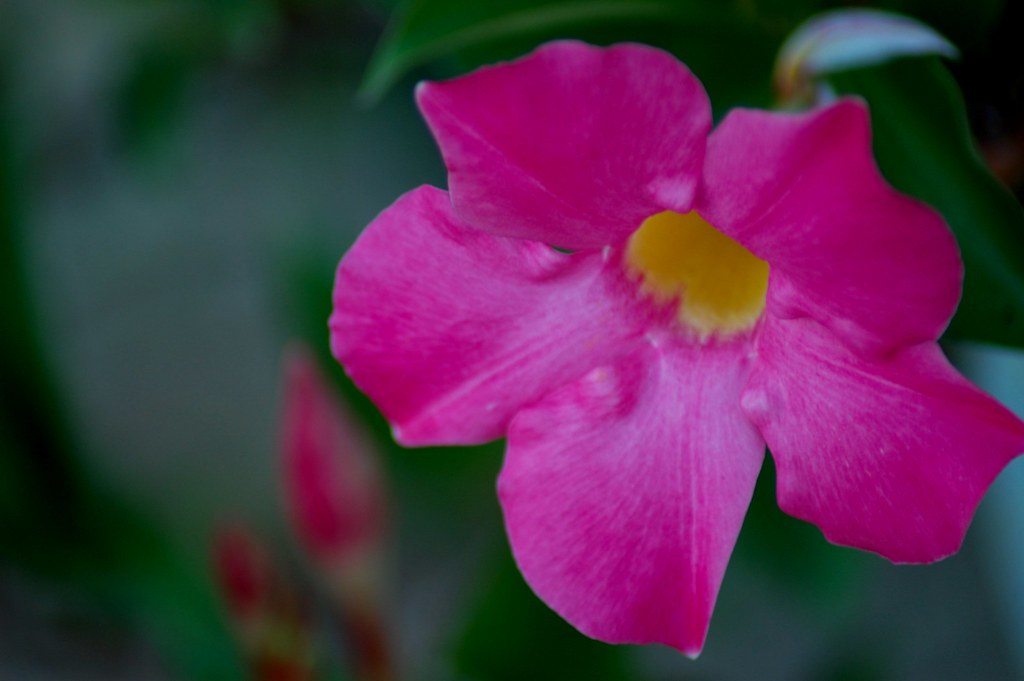
Mandevilla flower "Mandevilla helps us feel secure in the … Flickr
Mandevilla is a remarkable vine. It climbs very high and bears flowers prolifically. Major Mandevilla facts. Name - Mandevilla species Family - Apocynceae or dogbane Type - shrub, climbing vine. Height - 10 feet (3 meters) Exposure - well-lit Soil - well-drained. Foliage - evergreen Flowering - June to October. Caring for this plant, from planting to pruning and including.

Mandevilla
A classic tropical vine, mandevilla (Mandevilla) is a great way to add a splash of color to any sunny vertical space in your garden. With big, showy blooms that continue all summer and the fact that the plant is low-maintenance makes it a top vine choice.
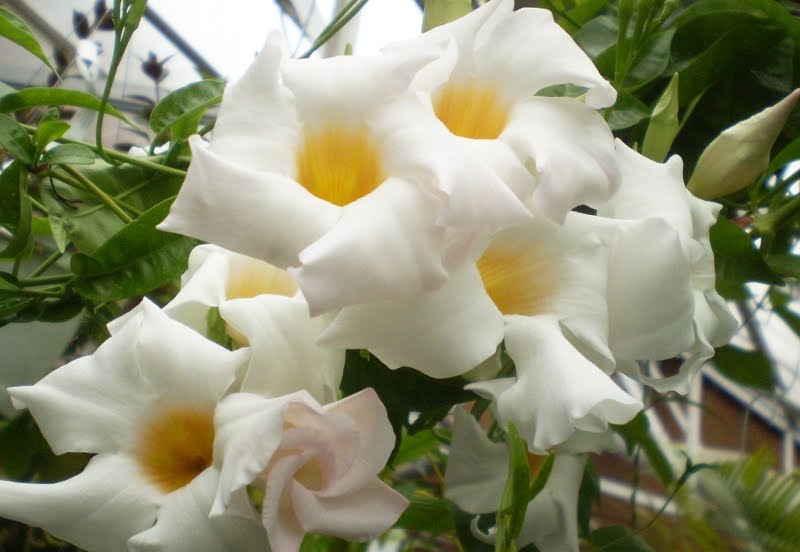
Plants are the Strangest People Pretty pictures Mandevilla cvv.
Spread - 3-20 feet (1-6 m) Sun exposure - Full Sun, Part Sun Soil requirements - Well-Draining Hardiness zones - USDA Zones 9-11 When to plant - Spring When & Where to Plant Mandevilla Mandevilla is most often planted in spring, after all chances of frost have passed and the soil has warmed.

Mandevilla Hibiscus, Clematis, Vines
Soak mandevilla seeds in water for approximately 12 hours before planting. Sow seeds in moist, free-draining compost and cover lightly. Place in a lidded propagator with temperatures ranging between 18-23ºC. Pot seedlings into individual pots once there are are least two pairs of leaves per plant.

Mandevilla Kent Wang Flickr
White mandevilla Mandevilla boliviensis syn. Dipladenia boliviensis. Zones: 10-11, usually grown as an annual Exposure: Full to partial sun Habit: Vining bushy habit Height/Spread: 3 to 10 feet tall, 3 to 6 feet wide Bloom Time: Late spring through summer Also known as white dipladenia, the elegant 3-inch white flowers with orange-yellow throats grow in clusters of 3 to 7 along vining branches.

Got these inside for winter still hanging on....love, have them every
[5]. Many originate from the . The genus was named after Henry Mandeville (1773-1861), a British diplomat and gardener. [6] Mandevillas develop spectacular, often fragrant flowers in warm climates. [7] The flowers come in a variety of colours, including white, pink, yellow, and red.
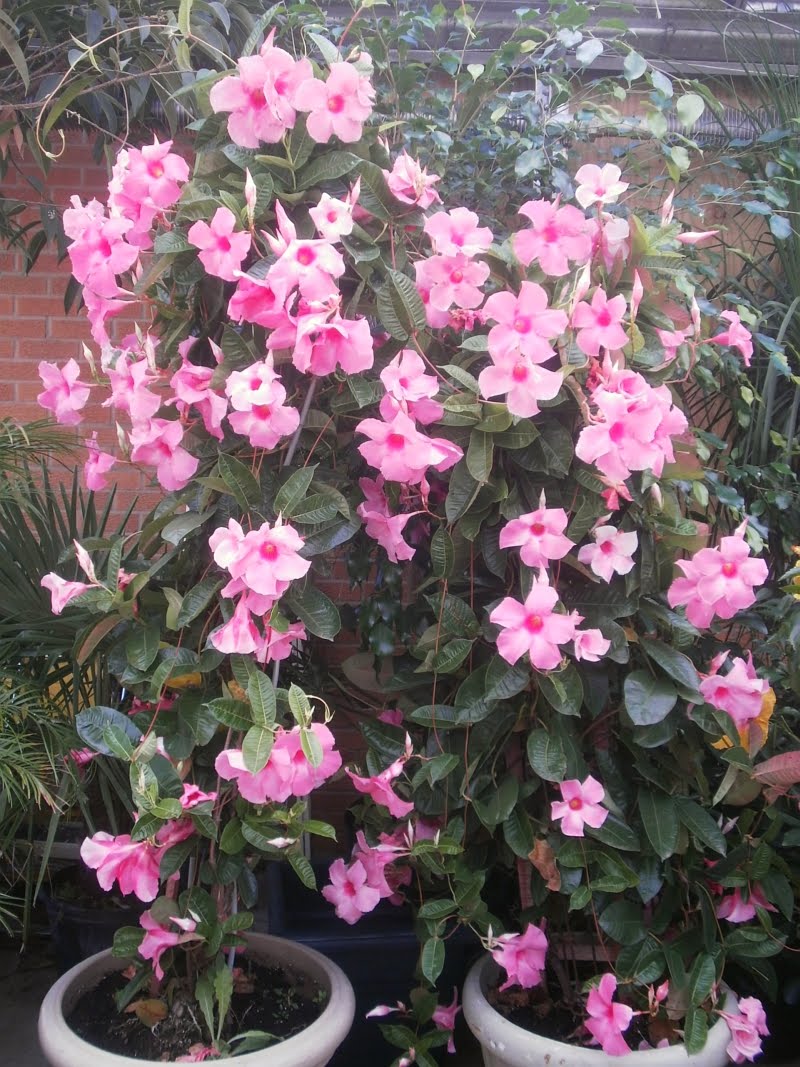
Plants are the Strangest People Pretty pictures Mandevilla cvv.
Soil Type Ideal soil for Mandevilla plants is well-draining, loamy soil that is rich in nutrients like nitrogen and calcium. Providing the right soil conditions ensures that the plant receives adequate nutrition and water for proper growth and flowering. When growing Mandevillas in containers or pots, using a compost potting mix is a good choice.

Sundaville White Classic Mandevilla (Dipladenia) Plumbago, Mandevilla
Mandevilla is a tropical, flowering vine that has become popular in landscapes and in pots on decks, patios, and porches thanks to its colorful flowers, long bloom time, and low-maintenance characteristics, says Justin Hancock, a Monrovia horticultural craftsman.